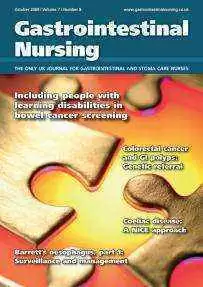Celiac.com 06/21/2012 - Retrospective studies and case reports have suggested that older patients with celiac disease may suffer from impaired cognitive function. To evaluate this possibility, a research team recently conducted a study of people with celiac disease who are over age 65.
 The researchers included S. Casella, B. Zanini, F. Lanzarotto, C. Ricci, A. Marengoni, G. Romanelli, A. Lanzini, of the Gastroenterology Unit of the Department of Medicine at University and Spedali Civili in Brescia, Italy.
The researchers included S. Casella, B. Zanini, F. Lanzarotto, C. Ricci, A. Marengoni, G. Romanelli, A. Lanzini, of the Gastroenterology Unit of the Department of Medicine at University and Spedali Civili in Brescia, Italy.
Celiac.com Sponsor (A12):
The researchers wanted to evaluate functional and cognitive performances in celiac disease, and in control patients, older than 65 years.
For their study, they recruited 18 celiac disease patients aged 75-years or older (±4 years, group A) who had been on a gluten free diet for an average of 5.5 years (±3 years), along with a control group of 18 patients matched for sex and age, averaging 76 years of age (±4 years, group ![]() .
.
The team then administered a number of functional and cognitive neuropsychological tests. They recorded the results as "row scores" and as "equivalent scores" by relating "raw scores" to reference rank categories.
For the functional tests, they found that the Barthel Index of functional performance was similar for both groups.
However, for the cognitive tests, they found that the "raw score" was significantly lower in celiac disease than controls. The cognitive tests included Mini Mental Test Examination (p=0.02), Trail Making Test (p=0.001), Semantic Fluency (p=0.03), Digit Symbol Test (p=0.007), Ideo-motor apraxia (p
The also found that the "equivalent score" was also lower in celiac disease than controls for tests of Semantic memory. The results showed that cognitive performance is worse in elderly patients with celiac disease than in healthy control patients, despite prolonged treatment with a gluten-free diet.
They write that "awareness on the increasing phenomenon of late-onset celiac disease is important to minimize diagnostic delay and prolonged exposure to gluten that may adversely and irreversibly affect cognitive function."
Source:
- Open Original Shared Link







Recommended Comments